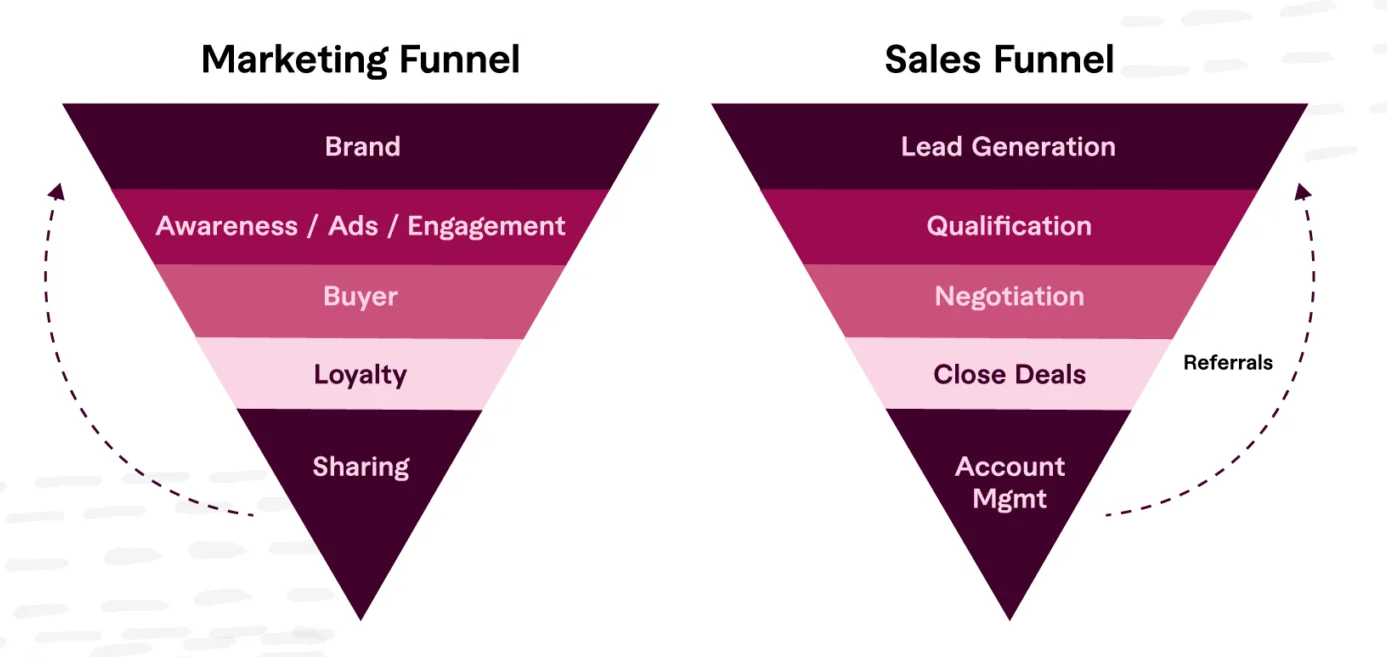Enhance Your B2B Marketing with Data-Driven Strategies for Business Growth and Success

Enhance Your B2B Marketing with Data-Driven Strategies for Business Growth and Success
Are you ready to take your B2B transactions to the next level? In this blog, we dive into essential B2B marketing research strategies that can help you make informed decisions, minimise risks, and maximise your chances of success.
Why do you need B2B marketing research?
Marketing and sales processes in the B2B sector are more complex as they involve a team of buyers making the purchase for their business. This is unlike in the B2C sector where the consumer makes the purchase for his own use. The B2B sector involves a longer process of identifying and converting leads. The primary challenge lies in the extended timeline for B2B purchase decisions, which often involve multiple stakeholders from the client side. These decision-makers follow internal purchase protocols such as thoroughly evaluating factors such as cost, efficiency, and competition before committing to a purchase.

To enhance customer engagement and drive a more meaningful business result a well-informed marketing strategy is required. For this marketing research is essential to drive success in the B2B sector especially if you are planning to expand your market or want to launch a new product, or explore new markets.
Understand Your B2B Buyers
Who are your buyers? What challenges are they facing? What are they looking for? In the B2B sector, the purchasers and end-users may not be the same. Many B2B companies operate through distribution channels such as dealer networks or specialised sales channels. It is crucial to identify both the buyers and key decision-makers involved in the purchasing process.
Marketing research can help map out the various entities involved in purchasing decisions and uncover the key factors influencing those decisions.
This insight helps to better strategize the marketing and sales processes as well as helps in designing relevant and effective marketing communication strategies.
Identify Potential Leads for Your B2B Products and Services
Along with understanding your B2B buyers, marketing research can also help determine which industries to target and which specific companies within those industries may benefit from your offerings. It answers crucial questions, such as which sectors to prioritise in your outreach strategy. B2B products and services often span multiple industries and this can mean that there are potentially a diverse range of clients with specific requirements. Identifying their needs and aligning them to your product or service solution helps in effectively widening your market reach.
How to make data-driven decisions for business growth?
Given below are marketing research and data driven strategies that can help B2B businesses make data informed tactics:
In-Depth Interviews and Focus Groups
Engaging in in-depth interviews and focus groups with dealers, retailers, and even end-users can provide valuable insights into how to better market your products. These discussions can reveal potential issues in marketing communications, product positioning, or supply chain networks that once addressed, can drive better sales performance. For instance, your end-users might prefer your brand, but your distributors may not be promoting it as aggressively as a competitor’s which may affect your overall sales.
Dealer audit
A Dealer Audit is a marketing research technique used to identify areas for improvement in the performance of a distribution network. In B2B marketing, it helps manufacturers or suppliers evaluate how effectively their dealers manage operations, promote the brand, and serve customers. Often conducted as a mystery audit, it assesses distributor or retailer performance in key areas like sales, brand promotion, customer service, and after-sales support. In industries where marketing relies on distributor networks, these audits provide insights into how dealers market your brand compared to competitors. They also help in identifying gaps and making recommendations for improving brand promotion strategies, creating new communication materials, and also pinpointing training needs for dealership staff in areas like customer service and after-sales support.
Leverage consumer data and CRM integration:

Most B2B businesses have vast amounts of consumer data that is generated from their websites and social media platform interactions. Integrating CRM (Customer Relationship Management) data with your website and social media platforms can provide powerful insights for B2B marketing.
Website user data analytics:
Integrating CRM data on websites helps provide information about website users and the actions that they take such as requesting for a demo, downloading product information etc. This helps identify potential leads and prospects among website users as well as understand what kind of content and information they are seeking. This can help brands in creating customised communication for leads and plan an optimal content marketing strategy.
-
Analyse website data about marketing email responses, filling of product information forms or downloading of white papers or other information that can help identify potential leads.
-
Identify potential customers and create target audience segments to reach out with relevant messaging based on the kind of information their website interactions reveal.
Social media data analytics:
Leveraging your social media data can help in better understanding market sentiments about your brand as well as about competitors in your industry. The following are some ways to use social media data analytics.
-
Use social media data analytics to understand which posts are driving engagement. Identify gaps in current content to create a more effective digital marketing strategy.
-
Use sentiment analysis to identify what is being discussed regarding your brand. This may include analysing customer feedback and sentiment in social media mentions, reviews, or forums. It can also be compared with that of competitors and help gain insight into industry-wide trends.
Optimise marketing and sales funnel:
The data analytics from website and social media platforms along with insights from field interviews and audits will help build an effective B2B content marketing funnel. This can help target audiences at each stage of the funnel to: create awareness, foster interest, guide potential leads toward consideration, and identify purchase intent.

In the B2B scenario, the marketing funnel extends to also include post-purchase support and build loyalty in existing clients. With insights from the marketing funnel, the sales team can develop a personalised sales funnel to nurture leads and drive conversions more optimally.
This seamless collaboration between marketing and sales enables the creation of personalised strategies that nurture leads and maximise conversion potential, ultimately driving long-term success in the B2B space.
Conclusion
In conclusion, embracing data-driven strategies is essential for enhancing B2B marketing efforts and driving business growth. By leveraging analytics from various sources like websites, social media, customer interviews, audits etc. businesses can make informed decisions, personalise their marketing approach, and optimise their sales funnel. This not only improves lead generation and conversion rates but also strengthens long-term relationships with customers. As data continues to shape the future of marketing, integrating these insights into your strategy will be key to staying competitive and achieving sustained success in the B2B landscape.
To know more about how to leverage data analytics and B2B marketing research to drive your business, visit Bestow AIR here. Our expert strategists will help you identify your marketing research requirements and get you started on an optimal data-informed strategy.
Categories
Recent Blogs
Send us a message
We'd love to hear from you
Let's build a plateform that works for you busines and the advertisers who trust it.
Talk to Our Expert